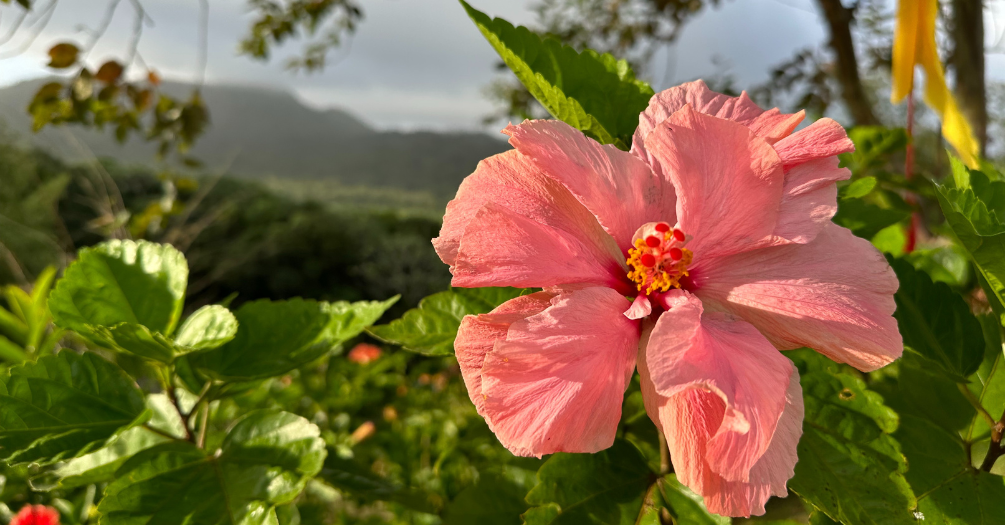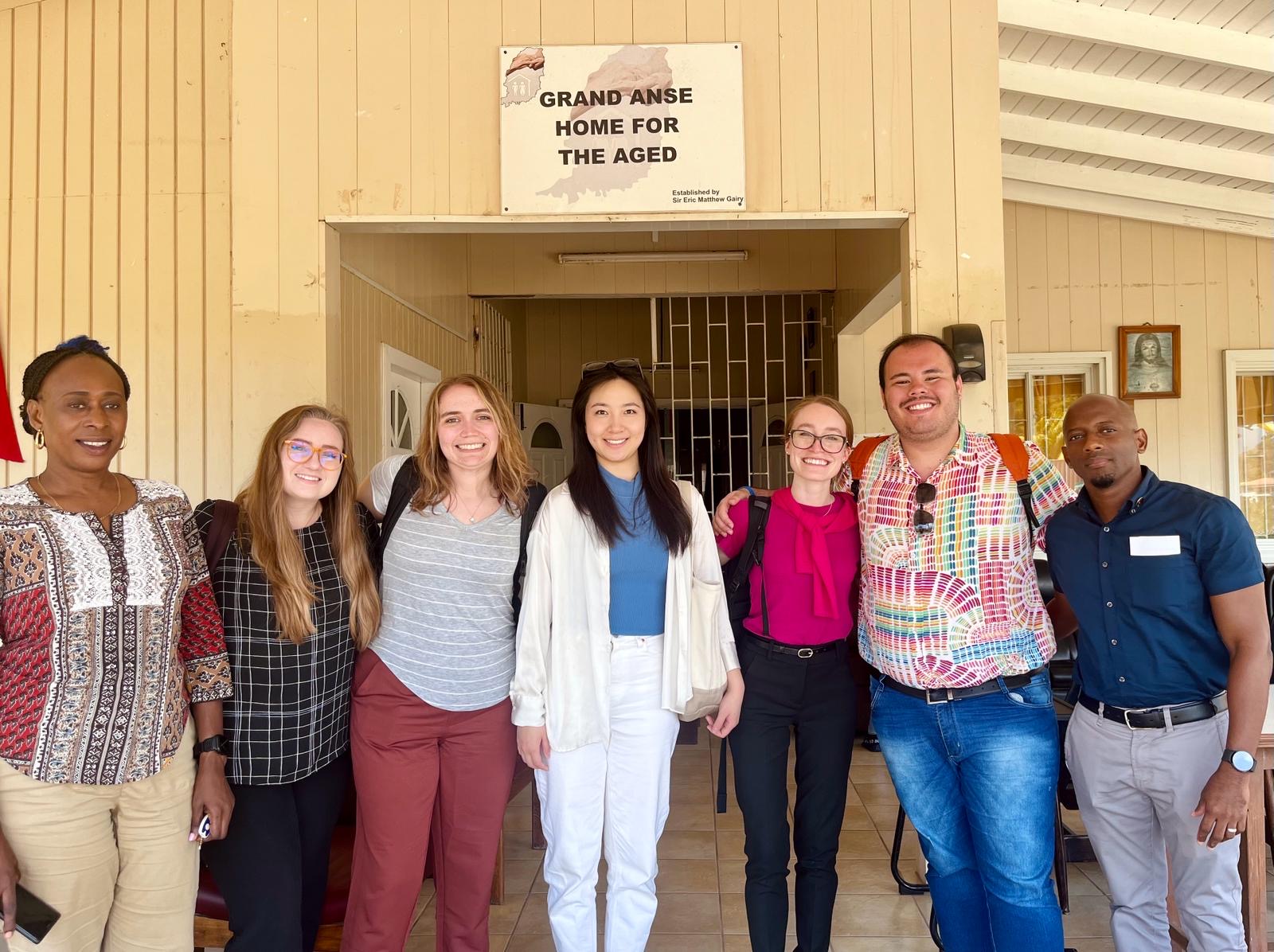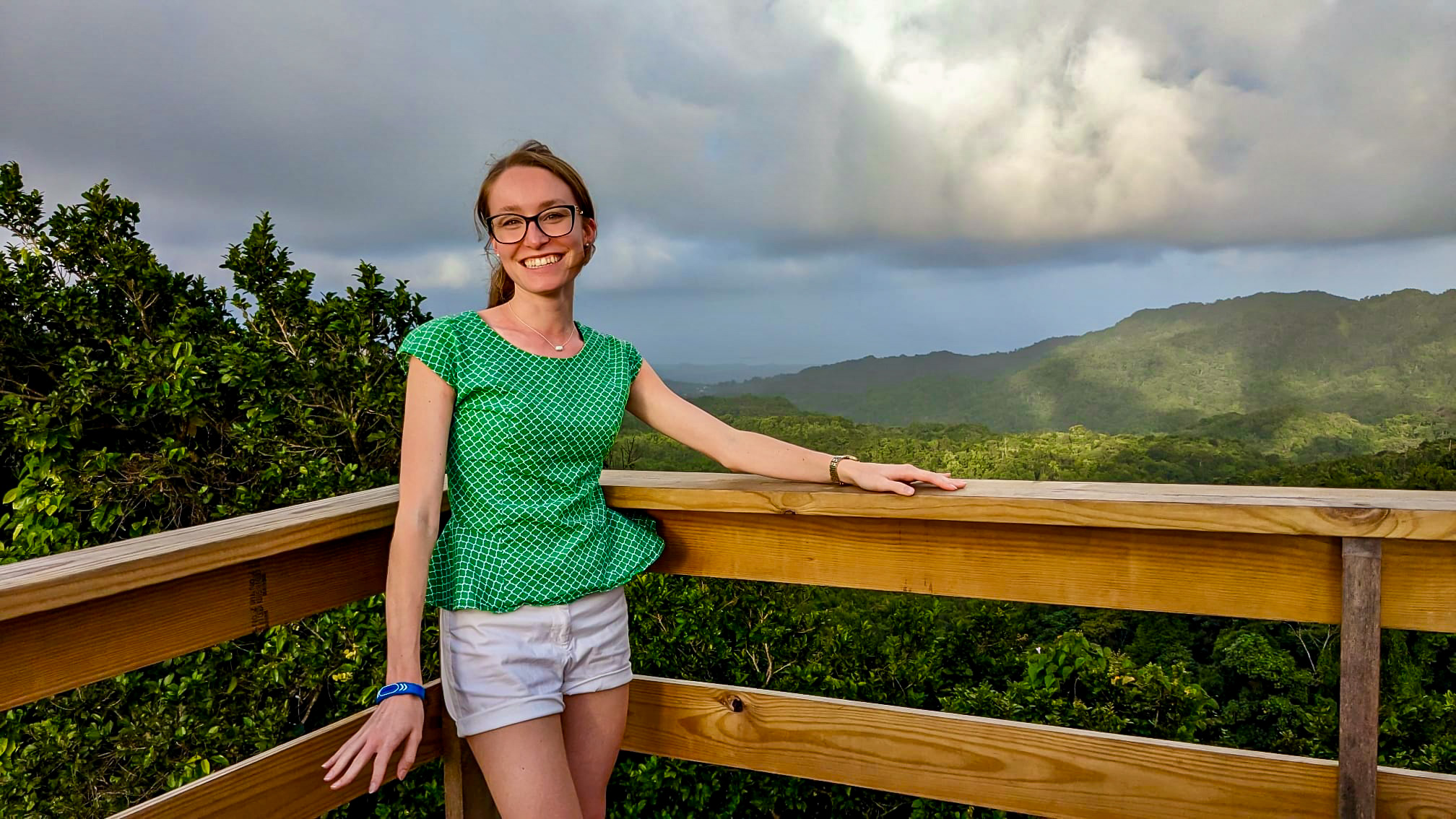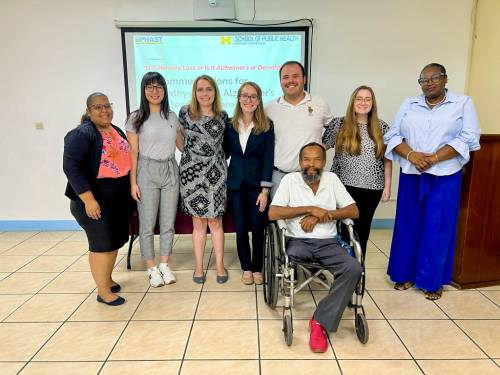Taking the Time to Find Meaning in Every Story

Allison Baumgartner
1st Year Global Health Epidemiology MPH Candidate
“Take the time to find the meaning in every experience.” This quote was a statement shared by a Ministry of Social and Community Development, Housing, and Gender Affairs officer during a Wednesday morning meeting during our collaborative work in Grenada.

As MPH students, we often investigate case studies, read articles, and examine community-engaged initiatives in the comfort of the classroom. Yet, it is not until faced with the realities of global collaboration and community engagement that we see how much we ascertained from our weekly lessons – adapting our skills and learning to be more equitable partners within the confines of existing infrastructures and systems. Coming from a biostatistics/epidemiology background – where numbers and trends are considered a phenomenon’s “objective truth” – the importance of words and stories are sometimes overlooked. Stories encapsulate the unique, lived experiences of community members, contextualizing why we see a particular trend and how this phenomenon profoundly impacts communities. In public health, there is a need to cultivate the skill of actively listening, rooted in a genuine concern for others.
While every community context is different, there is a universal need to feel supported in the places we live, work, and play – allowing all persons (no matter ability, background, or creed) the opportunity to thrive. It is incredibly apparent in global collaboration that we are a collective community where each person seeks health and happiness (knowing that the journey to reach these aspirations look different from person to person). By tapping into our commonalities rather than our differences, we can collectively work towards a brighter, healthier future for all people. The value of cross-cultural collaboration in public health cannot be overstated. Through this collaboration, we can truly understand the unique strengths, needs, and challenges of different communities and collectively develop tailored solutions that are effective and sustainable.

Finally, I return to the Alzheimer’s and Dementia Care Plan. There is a unique need for intentionality with the words we use in interventions, plans, and policy – acknowledging the unintended consequences/risks of imprecise language and naïve assumptions about communities. When enacting public health initiatives, it is vital to ask the community what is working well and what is not – where are the gaps? You must sit in the presence of community members in which a plan or policy impacts, listening and understanding the complexity of an issue or system. The best intervention recommendations stem from collaboration: synthesizing shared narratives across community stories and adapting effective public health solutions to a community's context.
In a world where our differences are often highlighted on the Nightly News, we as a global community should strive to find the idea(s) and value(s) we share—the bridge for collective hope—where cross-cultural collaboration can blossom, with its branches pointing towards a brighter future for all.
As I return home to continue my global epidemiology MPH journey, I will hold the Grenadian stories I heard close to my heart, driving me to ask more questions and learn new skills. As public health professionals, we aim to provide all communities (through policies, practices, and programs) with the opportunity to live long and healthy lives no matter where they were born, live, or age.

